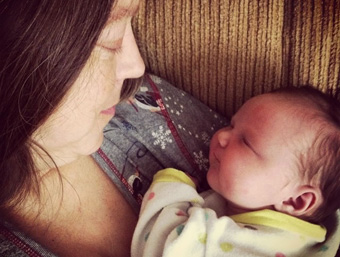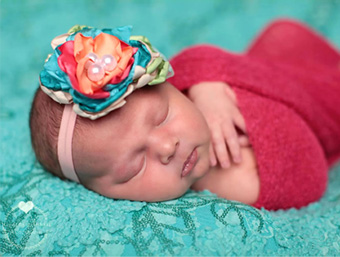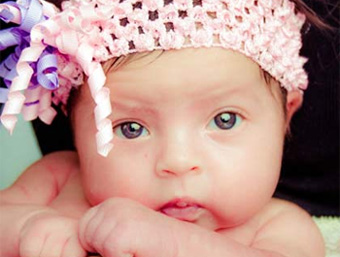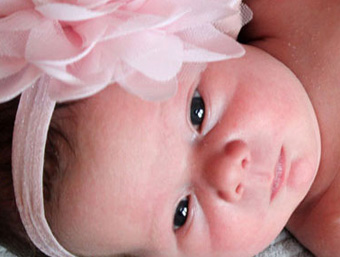 This is the second article focusing on the risk of pregnancy in older women. This article focuses on the risks of later pregnancy.
This is the second article focusing on the risk of pregnancy in older women. This article focuses on the risks of later pregnancy.
Many patients of A Personal Choice are over 40 years of age and they often ask about the risk of pregnancy in older women.
This series is intended to provide comprehensive information to women who desire pregnancy after tubal reversal surgery.
The first article of the entire series is Tubal Ligation Reversal After Age 40| Introduction.
The previous article, After Tubal Reversal: Risks In Early Pregnancy, discussed the risk of pregnancy in older women in the early part of pregnancy.
Late Pregnancy Risks
Hypertension And Preeclampisa
Older women are more likely to develop high blood pressure during pregnancy. High blood pressure in early pregnancy can cause fetal growth restriction (a smaller baby).
Older pregnant women are at greater risk of developing preeclampsia (toxemia) during pregnancy. The risk of developing preeclampsia is 2-3% among women less than 35 years of age, 5-10% for women over 40 years of age, and 35% for women over 50.
Preeclampsia can be easily diagnosed and managed by your doctor. In extreme cases treatment could require early delivery.
Gestational Diabetes
Gestational diabetes is high blood sugar caused by the stress of pregnancy on the body. If gestational diabetes is poorly controlled, there is a higher risk of having a large baby, C-section, or stillbirth.
Older women are more likely than younger women to develop gestational diabetes during pregnancy. The chance of developing gestational diabetes is approximately 3% in women under 40, approximately 12% for women over 40, and 20% for women over 50 years of age.
Gestational diabetes can be easily diagnosed and treated with diet, exercise, and, if necessary, medication.
Placental Problems
Older women are more likely to have placental problems. The most concerning problems are placental previa (placenta lies over the cervix) or placental abruption (early separation of the placenta from the uterus).
Placenta previa can be diagnosed by ultrasound and requires a c-section if women have heavy bleeding.
Placental abruption is unpredictable. The risk of placental abruption can be minimized by avoiding cigarette smoking or cocaine use and by having your blood pressure under good control during pregnancy.
Perinatal Morbidity and Mortality
Babies born to mothers of advanced maternal age are more likely to have higher perinatal morbidity (illness) and mortality (death). As a result of all of the problems listed above, babies born to mothers of advanced maternal age are more likely to be born prematurely or be small for their gestational age. The increased risk of prematurity is the primary reason these babies have a higher rate of morbidity and mortality.
These risks can be minimized by getting early and consistent prenatal care and by having medical problems well treated before pregnancy.
Cesarean Delivery
Women of advanced maternal age are more likely to require cesarean delivery because of the higher number of medical problems and higher chance of premature delivery.
The risk of cesarean in the general population is about 30%. In women 40-45 years of age the risk of cesarean is about 50% and women over the age of 50 have approximately an 80% risk of cesarean delivery.
Worsening of Pre-existing Medical Conditions
Women of advanced maternal age are more likely to have medical conditions that can complicate pregnancy. The most common medical conditions are high blood pressure, diabetes, heart disease, lung disease, and systemic illnesses such as rheumatoid arthritis and lupus. These illnesses can become worse during pregnancy.
Maternal Mortality
Women of advanced maternal age have a higher risk of mortality (death) during any given pregnancy.
Overall the risk of dying during pregnancy is extremely low in developed countries like the United States. Most maternal deaths are due to motor vehicle accidents or trauma. If a maternal death is directly related to pregnancy, the likely reason is worsening during pregnancy of a severe pre-existing medical problem. The most serious medical conditions that contribute to death in women of advanced maternal age during pregnancy are heart disease, lung disease, or blood clotting disorders.
Recommendations After Having Tubes Untied
If you are over the age of 40 or have serious medical problems and you desire pregnancy, you should consider these recommendations for a healthy pregnancy:
Start a multivitamin before and during pregnancy
Stop cigarette smoking and heavy consumption of alcohol
Ensure that any medical problems of conditions are under good control before becoming pregnant
Obtain a pre-conceptual (before becoming pregnant) counseling visit with your Ob/gyn or, if necessary, a high- risk pregnancy specialist (maternal fetal medicine specialist or MFM)
Consult your medical provider regarding the safety of any medications you may be on before becoming pregnant
Obtain early and consistent prenatal care
Consider early genetic testing
Tubal Reversals In Older Women In Summary
 Pregnancy in the woman of advanced maternal age presents challenges, but this is true of any pregnancy. The risks of pregnancy increase with maternal age. Most pregnancies that occur in healthy, older women will be completely normal and without problems. Many women who have tubal reversals will do well in future pregnancies.
Pregnancy in the woman of advanced maternal age presents challenges, but this is true of any pregnancy. The risks of pregnancy increase with maternal age. Most pregnancies that occur in healthy, older women will be completely normal and without problems. Many women who have tubal reversals will do well in future pregnancies.
Tubal Reversal Support: Personal Stories
Many personal stories about having a tubal reversal can be found on our Tubal Reversal Blog. Readers are also invited to join discussions with other women on our Tubal Reversal Message Board.
We have recently published two stories about pregnancy success in women over 40:
Dawne: Natural Pregnancy At 46 After Tubal Ligation Reversal.
Submitted by Dr. Charles Monteith










